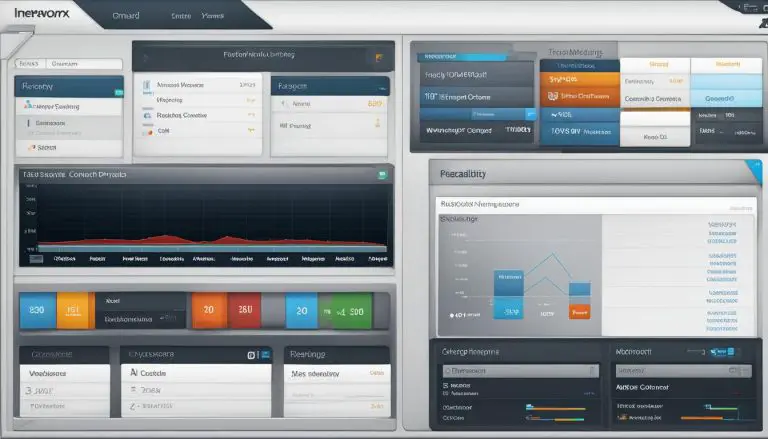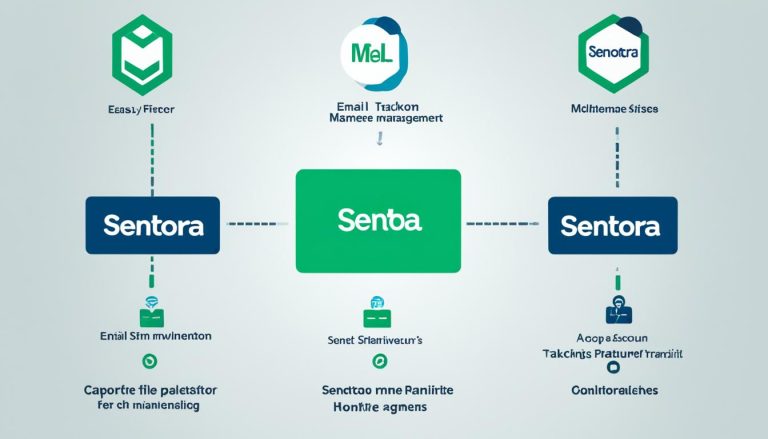Understanding eCommerce: What is Magento
Welcome to the world of eCommerce! In this article, I will introduce you to the powerful platform known as Magento. Whether you’re a business owner or just curious about the inner workings of online stores, understanding Magento is essential.
So, what is Magento? Simply put, Magento is a leading eCommerce platform owned by Adobe. It is designed specifically for creating and managing online stores, providing businesses with a robust set of features and functionalities.
Magento offers a wide range of benefits that make it a popular choice among businesses of all sizes. With its customizable nature, you can tailor your online store to meet your specific requirements. The platform also includes marketing tools, search engine optimization capabilities, and efficient catalog management.
One of the key advantages of Magento is its flexibility. Whether you’re a small startup or a large enterprise, Magento can accommodate your needs. It offers both a free open-source version and a commerce edition with advanced features, making it suitable for businesses with varying budgets.
With Magento, you can enhance your customers’ experience through the use of extensions and themes. This allows you to add functionality and improve the design of your online store, ensuring a seamless shopping journey for your customers.
Key Takeaways:
- Magento is a popular eCommerce platform owned by Adobe.
- It specializes in creating and managing online stores.
- Magento offers customization, marketing tools, and catalog management.
- There are both free and commerce editions available.
- Extensions and themes can be utilized to enhance functionality and design.
The Power of Magento: Features and Benefits
Magento is a robust ecommerce platform that offers a multitude of features and benefits to businesses. Its versatility and customizability make it an ideal solution for creating online stores that cater to specific needs and requirements.
One of the key features of Magento is its comprehensive product management system. This allows businesses to easily add, update, and manage their products, including options for variations, images, and pricing. Additionally, Magento’s category management feature enables businesses to organize their products into specific categories, making it easier for customers to navigate and find what they’re looking for.
Another advantage of Magento is its extensive marketing tools. From promotional pricing and discounts to targeted email marketing campaigns and customer segmentation, Magento provides businesses with the tools they need to effectively promote their products and reach their target audience. Furthermore, Magento offers analytics and reporting functionalities, allowing businesses to gain insights into their sales, customer behavior, and overall performance.
| Feature | Benefits |
|---|---|
| Product management | Easily add, update, and manage products |
| Category management | Organize products into specific categories for easy navigation |
| Marketing tools | Effectively promote products and reach the target audience |
| Analytics and reporting | Gain insights into sales, customer behavior, and overall performance |
Furthermore, Magento offers a range of functionalities for efficient order management. Businesses can easily process orders, manage inventory, and streamline the fulfillment process. Customer accounts are also a key feature of Magento, allowing businesses to provide a personalized experience to their customers with features such as saved addresses, order tracking, and wishlist creation.
In conclusion, Magento offers a wealth of features and benefits that empower businesses to create and manage successful online stores. From comprehensive product and category management to powerful marketing tools and efficient order management, Magento provides the necessary tools for businesses to thrive in the competitive ecommerce landscape.
Magento Open Source vs Magento Commerce: Choosing the Right Edition
When it comes to Magento, businesses have two options to choose from: Magento Open Source and Magento Commerce. Understanding the differences between these editions is essential for selecting the right one that meets your specific needs. Let’s take a closer look at each edition and what they offer.
Magento Open Source
Formerly known as Magento Community Edition, Magento Open Source is the free version of the platform. It provides a solid base set of features that allow businesses to create and manage their online stores effectively. The strength of Magento Open Source lies in its flexibility and the wide selection of extensions available in the Magento Marketplace. This edition is suitable for small to medium-sized businesses that have the technical expertise to handle customization and development independently.
Magento Commerce
Formerly known as Magento Enterprise Edition, Magento Commerce is the paid commercial version of Magento. It offers additional features and support, making it the preferred choice for larger enterprises or businesses with more complex requirements. With Magento Commerce, businesses have access to advanced functionalities such as customer segmentation, advanced marketing tools, staging and preview environment, and dedicated account management. This edition also includes expert support from Magento, ensuring a higher level of assistance and guidance throughout the implementation and ongoing usage of the platform.
| Magento Open Source | Magento Commerce |
|---|---|
| Free | Paid |
| Offers a solid base set of features | Additional advanced features |
| Wide selection of extensions available | Dedicated account management |
| Requires technical expertise for customization and development | Expert support from Magento |
Choosing the right edition depends on factors such as your business size, budget, and specific requirements. If you have a smaller business and prefer more control over customization, Magento Open Source might be the better option. On the other hand, if you have a larger enterprise with complex needs and require dedicated support, investing in Magento Commerce can provide a higher level of functionality and assistance.
Ultimately, both editions of Magento offer powerful features and capabilities, allowing businesses to build and manage successful online stores. Assess your needs and resources carefully to make an informed decision that will drive your ecommerce success.
Exploring Magento 2: The Latest Update
Magento 2 is the latest update of the Magento platform, offering a range of improvements and enhancements compared to its predecessor, Magento 1. With its updated technology stack and improved performance, Magento 2 provides a better and more efficient experience for both businesses and customers.
One of the key features of Magento 2 is its flexible architecture for websites. This allows businesses to easily customize and tailor their online stores to their specific needs. The enhanced customer experiences in Magento 2 ensure a seamless shopping journey, leading to increased customer satisfaction and higher conversion rates.
Magento 2 also brings faster loading speeds, optimizing the website’s performance. This not only improves the user experience but also contributes to higher search engine rankings. Additionally, the platform offers more secure payment options, ensuring the safety of customer transactions.
Another advantage of Magento 2 is its easier maintenance and upgrades. The platform provides a user-friendly admin panel interface, enabling businesses to efficiently manage their online stores without the need for extensive technical expertise. Furthermore, Magento 2 offers improved mobile optimization, making it easier for customers to browse and shop on mobile devices.
Magento Extensions: Enhancing Functionality
Magento extensions are a crucial component of the Magento platform, allowing businesses to expand and enhance the functionality of their online stores. These extensions are software modules that can be easily integrated into the Magento platform, providing additional features and capabilities to meet specific business needs. With thousands of extensions available in the Magento Marketplace, businesses have access to a wide range of options to customize and improve their online stores.
Magento extensions are categorized based on their functionality, making it easier for businesses to find the right modules for their specific requirements. Some of the popular categories of Magento extensions include customer service, payments, security, marketing, shipping, and site optimization. For example, businesses can install extensions for customer reviews to build trust and credibility, or they can integrate with third-party systems for seamless order fulfillment and inventory management.
In addition to the pre-built extensions, businesses also have the option to develop custom Magento extensions tailored to their unique needs. This allows for even greater customization and flexibility, ensuring that the online store meets specific business requirements. Magento’s open-source nature and flexible architecture make it easy for developers to create custom extensions and integrate them into the platform.
Here are a few examples of popular Magento extensions:
- Magento Gift Card Extension: Allows businesses to offer digital gift cards that customers can purchase and redeem on their online store.
- Magento One Step Checkout Extension: Streamlines the checkout process, reducing cart abandonment and improving the overall shopping experience for customers.
- Magento Advanced Search Extension: Enhances the search functionality of the online store, making it easier for customers to find products quickly and efficiently.
- Magento SEO Extension: Helps optimize the online store for search engines, improving visibility and driving organic traffic to the website.
By leveraging the power of Magento extensions, businesses can enhance the functionality, user experience, and overall performance of their online stores. With the vast selection available in the Magento Marketplace, businesses can easily find and install the extensions that best meet their needs, enabling them to create a unique and engaging online shopping experience for their customers.
Table: Top Magento Extension Categories
| Extension Category | Description |
|---|---|
| Customer Service | Extensions that enhance customer support and communication, such as live chat, ticketing systems, and customer feedback tools. |
| Payments | Extensions that enable businesses to accept various payment methods, such as credit cards, PayPal, and other popular payment gateways. |
| Security | Extensions that enhance the security of the online store, protecting customer data and preventing fraudulent activities. |
| Marketing | Extensions that provide marketing tools and features, such as email marketing, social media integration, and customer segmentation. |
| Shipping | Extensions that simplify shipping and fulfillment processes, integrating with popular shipping carriers and providing real-time shipping rates. |
| Site Optimization | Extensions that optimize the performance and speed of the online store, improving page load times and overall user experience. |
The Difference Between Magento 1 and Magento 2
Magento 1 and Magento 2 are both popular ecommerce platforms, but they have significant differences in terms of features, improvements, and overall performance. Let’s take a closer look at the key contrasts between the two versions.
Magento 1 Features
Magento 1 was a groundbreaking platform when it was first introduced, offering a range of features that enabled businesses to create and manage their online stores effectively. Some notable features of Magento 1 included a robust product management system, flexible catalog management, and the ability to handle multiple stores from a single installation. Additionally, Magento 1 offered various marketing tools to help businesses optimize their online presence and increase sales.
Magento 2 Improvements
Magento 2 was designed to address the limitations and challenges of its predecessor while introducing new improvements and features. One significant improvement is the architecture, which is more flexible and scalable. This enhances performance and allows for easier customization and development. Magento 2 also introduced a streamlined checkout process, resulting in a smoother customer experience and reducing cart abandonment rates. Improved mobile optimization was another key enhancement, enabling businesses to deliver a seamless shopping experience across different devices.
| Magento 1 | Magento 2 |
|---|---|
| Robust product management system | More flexible and scalable architecture |
| Flexible catalog management | Streamlined checkout process |
| Multiple stores from a single installation | Improved mobile optimization |
Overall, Magento 2 offers a more user-friendly interface, faster website performance, enhanced security, and improved admin panel navigation. It also addresses some of the extension conflicts that were present in Magento 1, providing a smoother integration experience. Upgrading to Magento 2 is recommended for businesses looking to leverage the latest features, performance improvements, and scalability that the platform has to offer.

Pros and Cons of Magento eCommerce
When considering Magento as an ecommerce platform, it’s important to weigh the pros and cons to determine if it’s the right fit for your business. Here are some advantages and disadvantages to consider:
Advantages:
- Customizability: One of the biggest advantages of Magento is its flexibility and customizability. It allows businesses to create unique online stores tailored to their specific needs and branding.
- Advanced features: Magento offers a wide range of advanced features such as marketing tools, inventory management, and responsive design, which contribute to a seamless shopping experience for customers.
- Supportive community: Magento has a strong and supportive community of developers and users who provide support, resources, and extensions to enhance the platform’s functionality.
Disadvantages:
- Cost: Magento can be expensive, especially for larger enterprises. There are costs associated with hosting, extensions, and customization, which can add up.
- Technical expertise: Customizing and developing on the Magento platform requires technical expertise. Businesses may need to invest in skilled developers or agencies to make the most of the platform.
- Hosting requirements: Magento has intensive hosting requirements to ensure optimal performance. This may require businesses to invest in high-quality hosting services.
Overall, the benefits of Magento, such as its customizability, advanced features, and supportive community, outweigh the disadvantages for many businesses. However, it’s important to carefully consider the costs and technical requirements before making a decision.
| Pros | Cons |
|---|---|
| Customizability | Cost |
| Advanced features | Technical expertise |
| Supportive community | Hosting requirements |
Magento Ecommerce Extensions and Themes
When it comes to enhancing the functionality and design of your Magento online store, there is a wide range of extensions and themes available. These extensions allow you to add new features and integrate with third-party systems, while themes focus on the visual appearance of your website. With thousands of options to choose from in the Magento Marketplace, you can customize your store to create a unique and engaging shopping experience for your customers.
Magento extensions are like plugins that extend the capabilities of your online store. They can help you with various aspects of your business, such as customer service, payments, security, marketing, shipping, and site optimization. For example, you can use an extension to add customer reviews, enhance search functionality, or integrate your store with popular social media platforms.
Similarly, Magento themes allow you to customize the look and feel of your online store. You can choose from a wide variety of pre-designed themes or create a custom theme that aligns with your brand identity. A visually appealing and user-friendly design can greatly impact the overall shopping experience and increase customer engagement on your site.
Whether you need to add specific functionalities or revamp the design of your store, Magento extensions and themes offer endless possibilities. With the flexibility and customization options they provide, you can create a unique and tailored online store that stands out from the competition.

Benefits of Magento Extensions and Themes:
- Enhance the functionality of your online store
- Improve the overall shopping experience for customers
- Customize the design to align with your brand identity
- Integrate with third-party systems for seamless operations
- Stay ahead of the competition with unique features and design elements
The Magento Commerce Marketplace: Expanding Capabilities
The Magento Commerce Marketplace is a vital platform for businesses using the Magento ecommerce platform to enhance their online stores. It offers a vast selection of extensions, themes, and integrations that allow businesses to expand their capabilities and tailor their online stores to their specific needs. Whether you’re looking for additional functionalities, improved design elements, or seamless integrations with third-party systems, the Magento Commerce Marketplace has you covered.
With thousands of extensions available, businesses can find solutions for various aspects of their online stores, including customer service, payments, security, marketing, shipping, and site optimization. These extensions can be easily customized and integrated into the Magento platform, providing businesses with the flexibility to create a unique and engaging shopping experience for their customers. Additionally, the marketplace offers a wide selection of themes that cater to different design preferences, allowing businesses to create visually appealing and user-friendly websites.
“The Magento Commerce Marketplace serves as a hub for the Magento community, providing access to a wealth of resources and solutions for businesses using the Magento platform.”
Developers and vendors also play a vital role in the Magento Commerce Marketplace. They contribute by creating and selling their own Magento extensions and themes, expanding the range of options available to businesses. This collaborative nature of the marketplace strengthens the Magento community and fosters innovation, ensuring that businesses have access to the latest solutions and advancements in ecommerce.
| Benefits of the Magento Commerce Marketplace: |
|---|
| 1. Access to a wide range of extensions, themes, and integrations |
| 2. Customizable solutions to meet specific business needs |
| 3. Enhanced functionalities and improved customer experience |
| 4. Collaboration and innovation within the Magento community |
The Magento Commerce Marketplace is a valuable resource for businesses using the Magento platform. It empowers businesses to enhance their online stores, expand their capabilities, and provide an exceptional shopping experience for their customers. With its wide range of extensions, themes, and integrations, the marketplace continues to support and drive growth in the Magento community.
Conclusion
After exploring the features, benefits, and editions of Magento, it is clear that Magento is a powerful and versatile ecommerce platform. With its range of functionalities, customizable themes, and extensive marketplace of extensions, Magento provides businesses with the tools they need to create and manage successful online stores.
From small startups to large enterprises, Magento offers scalability and flexibility, making it suitable for businesses of all sizes. The platform’s advanced features, such as marketing tools, inventory management, and SEO optimization, contribute to a seamless and engaging shopping experience for customers.
While Magento may come with some challenges and costs, the advantages it offers outweigh the drawbacks for many businesses. The ability to customize and tailor online stores, along with the support and resources provided by the Magento community, makes Magento a top choice for ecommerce businesses.
In conclusion, Magento is a comprehensive ecommerce solution that empowers businesses to create unique and successful online stores. With its extensive capabilities and support, Magento remains a leader in the ecommerce industry.
FAQ
What is Magento?
Magento is a popular ecommerce platform owned by Adobe that specializes in creating online stores.
What are the key features of Magento?
Some of the key features of Magento include product management, category management, inventory management, customer accounts, order management, marketing tools, and analytics and reporting.
What are the editions of Magento?
Magento comes in two editions: Magento Open Source (formerly known as Magento Community Edition) and Magento Commerce (formerly known as Magento Enterprise Edition).
What is Magento 2?
Magento 2 is the latest update of the Magento platform, offering several improvements and enhancements over its predecessor, Magento 1.
What are Magento extensions?
Magento extensions are pieces of software that can be added to the Magento platform to enhance its functionality, catering to various needs such as customer service, payments, security, marketing, shipping, and site optimization.
What are the differences between Magento 1 and Magento 2?
Magento 2 has a more flexible architecture, faster website performance, enhanced mobile optimization, and an improved admin panel interface compared to Magento 1.
What are the advantages of using Magento as an ecommerce platform?
Magento offers flexibility, customizability, advanced features, and a supportive community, allowing businesses to create unique online stores tailored to their needs.
What is the Magento Commerce Marketplace?
The Magento Commerce Marketplace is a platform where businesses can find and download extensions, themes, and integrations to enhance their Magento online stores.
What are the pros and cons of using Magento?
Magento offers advantages such as flexibility and advanced features, but it can be expensive and requires technical expertise for customization and development.
How can Magento extensions and themes enhance an online store?
Magento extensions and themes allow businesses to customize their online stores, add new features, and enhance the visual appearance to improve the customer experience.
- About the Author
- Latest Posts
Mark is a senior content editor at Text-Center.com and has more than 20 years of experience with linux and windows operating systems. He also writes for Biteno.com






